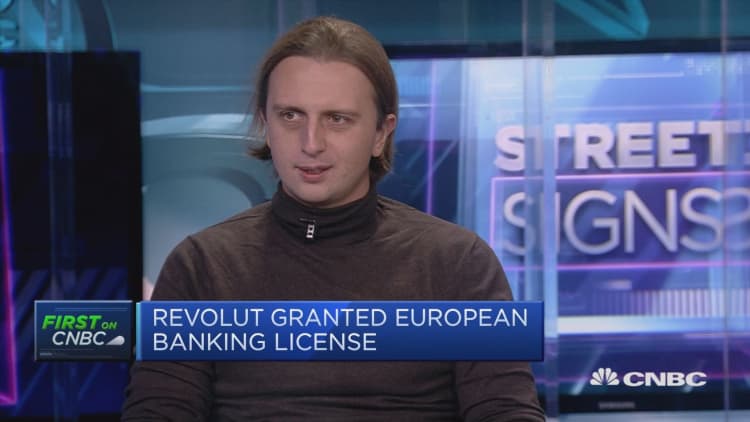Swedish financial technology start-up Tink says it's raised 56 million euros ($64 million) in a funding round aimed at fueling its expansion plans.
The funding exercise values Tink at approximately 240 million euros ($273 million), a person familiar with the deal told CNBC on the condition of anonymity as the valuation has not been publicly announced.
The Stockholm-based firm, which is backed by European banks SEB, Nordea and ABN AMRO, offers an app for people to get a snapshot of how they're spending across all their bank accounts.
But it also licenses its technology to banks with partnership deals, through which it either integrates its platform with their apps or helps them develop new standalone apps.
For instance, the company joined forces with ABN AMRO to help the Dutch lender create a new financial management app called Grip.
Tink said Thursday it had picked up fresh capital in a venture round that was led by Insight Venture Partners, with backing from SEB, Nordea's venture capital arm and ABN AMRO's corporate venture fund.
Christian Clausen, former chief executive of Nordea, and Nikolay Storonsky, co-founder and chief executive of fintech start-up Revolut, also invested in the company.

Fredrik Hedberg, co-founder and chief technology officer of Tink, said in an interview that the company has become "100 percent" focused on the client-facing side of its business, where it sells its technology to other providers.
"Today Tink is an open banking platform company that builds the platform as a service for financial services companies." the 36-year-old entrepreneur told CNBC.
Tink's offering is part of a broader theme in fintech known as "open banking," the idea that non-banking firms should be able to access consumers' bank account data — with the bank customer's consent — to create new financial apps.
Such products could give people a better view of their spending across accounts and make suggestions like switching to a new utility provider to save costs. The initiative was encompassed in a new law introduced by the European Union last year.
Some in the fintech space, like Britain's Revolut and Germany's N26, have been more focused on creating their own digital challenge to what traditional lenders provide, rather than partnering with banks.
For his part, Tink's tech chief said that working with banks is "a really great thing."
"Obviously for us, it's a business, it's a way to get leverage on our technology," Hedberg said. "But also for the industry, the market and society… it's going to increase transparency for the market and bring increased competition to the market."
Fredrik added that, as well as banks, it works with fintechs from Swedish online payments firm Klarna to smaller enterprises that consist of "two guys in their garage."
"It's very similar actually between these segments," he said. "They're all using our platform to build their next generation of banking products."
Tink said the funding announced Thursday will be used to fuel the expansion of its development platform — which is used by software developers to get access to financial data — to the U.K., Germany, Austria, Belgium and Spain.
Tink's Hedberg said that, while the firm was focused on continuing to roll out across Europe, an international expansion beyond the continent was on the horizon.
"While we see it's very important for us to continue to dominate Europe, this is obviously just the first step," he said. "We think this is a global trend and a global opportunity for us."


